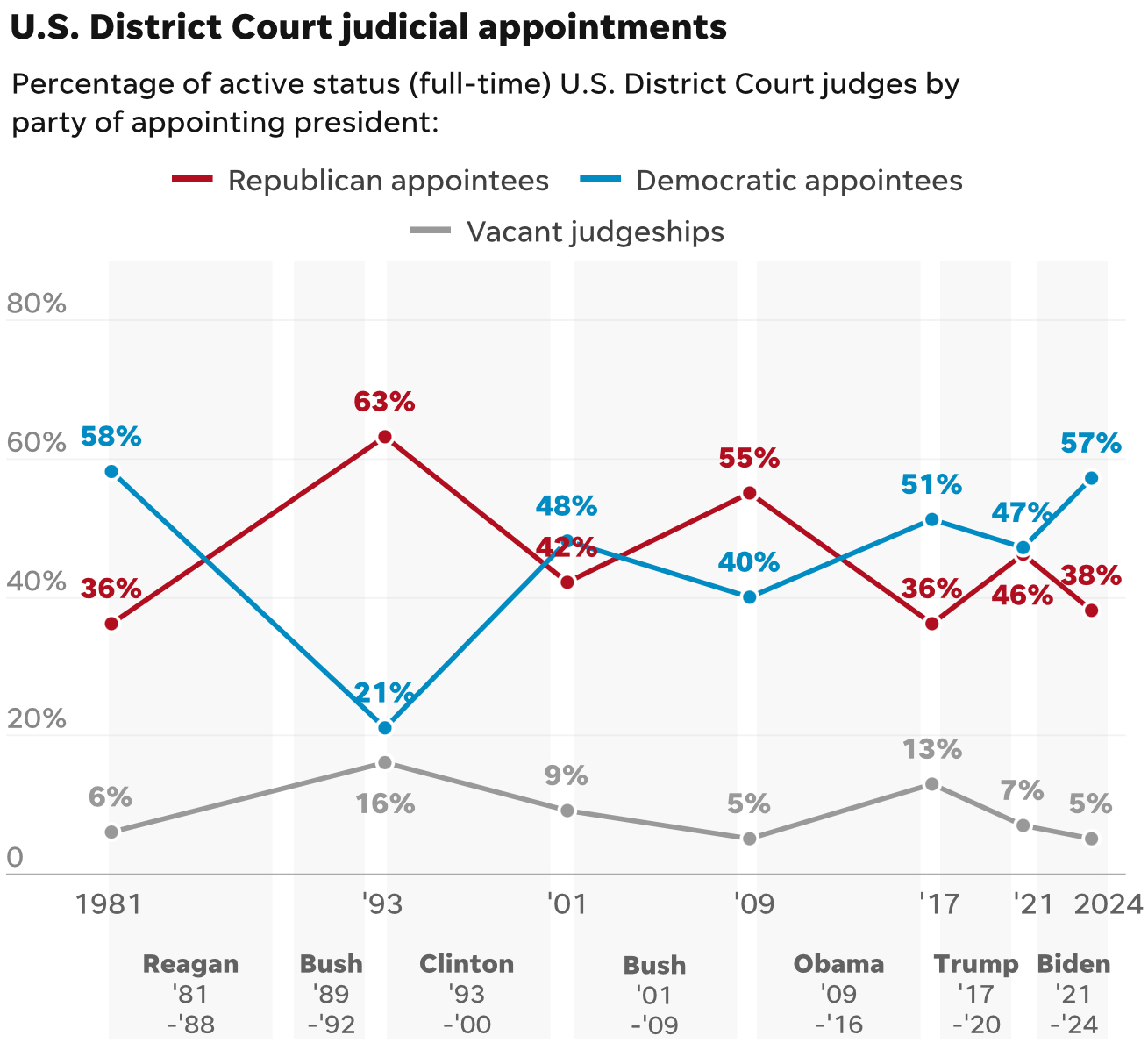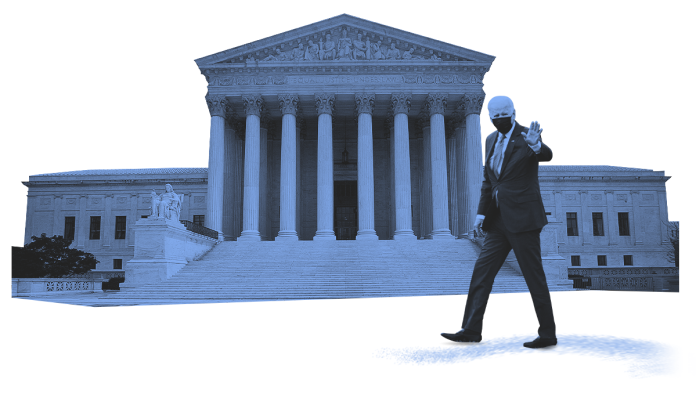Biden’s Focus on Confirming Judges Reshaped Courts as Democrats Challenge Trump Agenda
(AP) — Nearly six out of 10 federal district judges have been appointed by Democratic presidents.
Before Democrats surrendered control of Congress and the White House to Republicans in January, they celebrated the fact that Joe Biden had put more judges on the federal bench than any recent president in a single term.
“Judges shape our lives,” Biden said on social media in December, touting the confirmation of his 235th judicial nominee and what he called “the legacy I’ll leave with the men and women I’ve appointed.”
That legacy has become even more important for Democrats now that the courts are their best chance of thwarting President Donald Trump’s efforts to significantly downsize and reshape the federal government in ways that are testing his legal authority to do so.
Nearly six out of 10 full-time federal district judges – the first judicial layer to consider the growing number of lawsuits against Trump’s actions – have now been appointed by Democratic presidents, according to the Brookings Institution. At the start of Biden’s presidency, the appointments were nearly evenly divided after Trump picked almost as many judges as Biden later got confirmed.

At the next level of judicial scrutiny – the appeals courts – the number of full-time judges appointed by Democratic presidents has pulled even with those appointed by Republicans.
But while Biden got to fill one Supreme Court vacancy, his choice – Justice Ketanji Brown Jackson – did not change the ideological makeup of the court as she replaced Justice Stephen Breyer, who had been appointed by President Bill Clinton, a Democrat.
That left the highest court with the 6-3 conservative supermajority it had after Trump appointed three justices during his first administration.
“We can expect that these cases will tend to get friendlier to the administration as they go up the appellate ladder,” Benjamin Wittes, a senior fellow in Governance Studies at Brookings, said on a recent episode of “The Lawfare Podcast.”
Russell Wheeler, a senior fellow at the Brookings Institution who compiled the nomination data, said knowing which president appointed a judge isn’t a sure-fire predictor of how the judge will rule, but there’s a relationship.
That’s why Democrats are filing their challenges in districts where their odds of getting a more sympathetic judge at the district and circuit level, are higher, just as Republicans favored certain GOP-friendly districts when they were trying to stop Biden’s policies.
“Both sides do it,” Wheeler said.








